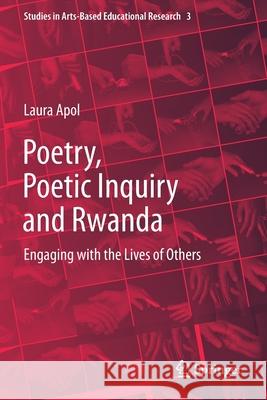Poetry, Poetic Inquiry and Rwanda: Engaging with the Lives of Others » książka
topmenu
Poetry, Poetic Inquiry and Rwanda: Engaging with the Lives of Others
ISBN-13: 9783030565640 / Angielski / Miękka / 2021 / 138 str.
Poetry, Poetic Inquiry and Rwanda: Engaging with the Lives of Others
ISBN-13: 9783030565640 / Angielski / Miękka / 2021 / 138 str.
cena 402,53
(netto: 383,36 VAT: 5%)
Najniższa cena z 30 dni: 385,52
(netto: 383,36 VAT: 5%)
Najniższa cena z 30 dni: 385,52
Termin realizacji zamówienia:
ok. 22 dni roboczych.
ok. 22 dni roboczych.
Darmowa dostawa!
Kategorie:
Kategorie BISAC:
Wydawca:
Springer
Język:
Angielski
ISBN-13:
9783030565640
Rok wydania:
2021
Ilość stron:
138
Waga:
0.20 kg
Wymiary:
23.39 x 15.6 x 0.76
Oprawa:
Miękka
Wolumenów:
01
Dodatkowe informacje:
Wydanie ilustrowane











